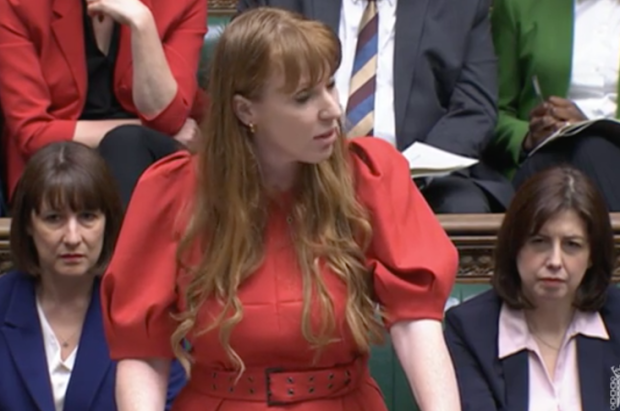At last week’s G7 summit, Boris Johnson pushed his fellow leaders to back his climate finance plan to support large-scale renewable energy projects across Africa and parts of Asia. The PM received a decidedly lukewarm response to his new Marshall plan, only netting pledges from Canada and Germany – and for good reason. As Rishi Sunak highlighted this week, when he declined to put a ‘specific figure’ on the cost of Net Zero in an interview on GB News, the cost of these climate plans are anything but clear.
Fundamentally, Boris’s plan to boost renewables around the world misses the fact that renewables are actually struggling to catch up with traditional energy sources. This isn’t likely to change any time soon: thanks to renewable energy’s reliability issues, the need for solid energy infrastructure in developing countries, and soaring demand for petrochemicals, the fundamentals of the fossil fuel industry remain strong.
It’s not surprising that most G7 states have shied away from making significant new pledges towards climate finance. Before the summit, the PM was already facing opposition within his own government, with the Treasury reluctant to free up new funds for the plan before the autumn spending review. Instead, the Treasury had only ‘reaffirmed’ an existing vague commitment to ‘increase and improve’ climate finance contributions.
During the pandemic, the UK managed to fund fossil fuel projects, as did other G7 governments. Over the past year, they channelled some £137 billion into oil, coal and gas, propping up their airline and car industries that were being hit by the pandemic.
Major energy powers have been betting even more extensively on traditional fuels. Norway recently released a white paper on its long-term energy strategy which made clear that the country intends to continue exploiting its substantial fossil fuel reserves in the decades to come. ‘We will supply energy to the world as long as the demand exists,’ Norwegian energy minister Tina Bru vowed, as the country opened new areas for oil exploration and state firm Equinor made a new offshore oil discovery.
Rosneft’s massive new £80 billion ‘Vostok Oil’ project, meanwhile, makes it clear that Russia also sees a promising future for the sector. The scale of the project is staggering. The construction of the enormous complex alone involves building three airfields, two sea terminals, a railway, 50 vessels and facilities to generate 3,600 megawatts of power. This will require hundreds of thousands of workers, and the project is expected to yield 100 million tons of oil a year by 2030.
According to the company’s CEO, one of the project’s major advantages is that oil from the Vostok fields has an unusually low sulfur content, meaning that the project’s carbon footprint could be as much as 75 per cent lower than other major oil projects. This is something that climate activists often overlook: technology is also making fossil fuels greener.
The prospect of what some have called ‘green barrels of oil’ may further delay the spread of renewable energy. Renewable energy has been plagued for years by reliability concerns: essentially, what happens if there’s not enough (or too much) sun or wind. Hazardous materials are also required to make solar panels and wind turbines and dealing with the waste remains a substantial challenge. On top of that, there are geostrategic concerns, as many solar panels and windmills are produced in China.
Even in the EU, where green energy has been heavily promoted through regulation and subsidies, renewables still only account for about one fifth of the bloc’s energy consumption – much of which actually comes from biomass. In the United States, biomass even makes up 98 per cent of the renewable energy use in the industrial sector.
The fact that biomass is considered carbon neutral under EU law, despite the fact that scientists have warned EU policymakers that burning wood for electricity production can worsen climate change, only illustrates how desperate EU policymakers are to prop up the share of ‘renewable energy’.
Fossil fuels still dominate global electricity generation and are especially key in the developing world. As researcher Vijaya Ramachandran recently argued in Nature, ‘blanket bans on fossil-fuel funds will entrench poverty’ as ‘Africa needs reliable energy infrastructure, not rich-world hypocrisy.’ She adds that ‘much of development – roads, schools, housing, reliable power – cannot be realised quickly with green power alone… it would be the height of climate injustice to impose restrictions on the nations most in need of modern infrastructure and least responsible for the world’s climate challenges.’
As large rural populations in countries like China, India, Brazil, Nigeria and Indonesia move to cities where consumption habits are strongly linked to plastics, this uptick in petrochemical demand is likely to provide a further boost for fossil fuels. The International Energy Agency estimates that petrochemicals will account for 60 per cent of oil demand in the upcoming years, in particular due to increasing demand for plastic packaging. Oil prices are already near the highest levels since 2014, even if this is, of course, also a result of monetary expansion by central banks.
Before going on a global mission to phase out fossil fuels, perhaps Boris Johnson ought to take a closer look at the economic fundamentals – which show that fossil fuels should not be written off just yet.
<//>
Got something to add? Join the discussion and comment below.
Get 10 issues for just $10
Subscribe to The Spectator Australia today for the next 10 magazine issues, plus full online access, for just $10.


















Comments
Don't miss out
Join the conversation with other Spectator Australia readers. Subscribe to leave a comment.
SUBSCRIBEAlready a subscriber? Log in